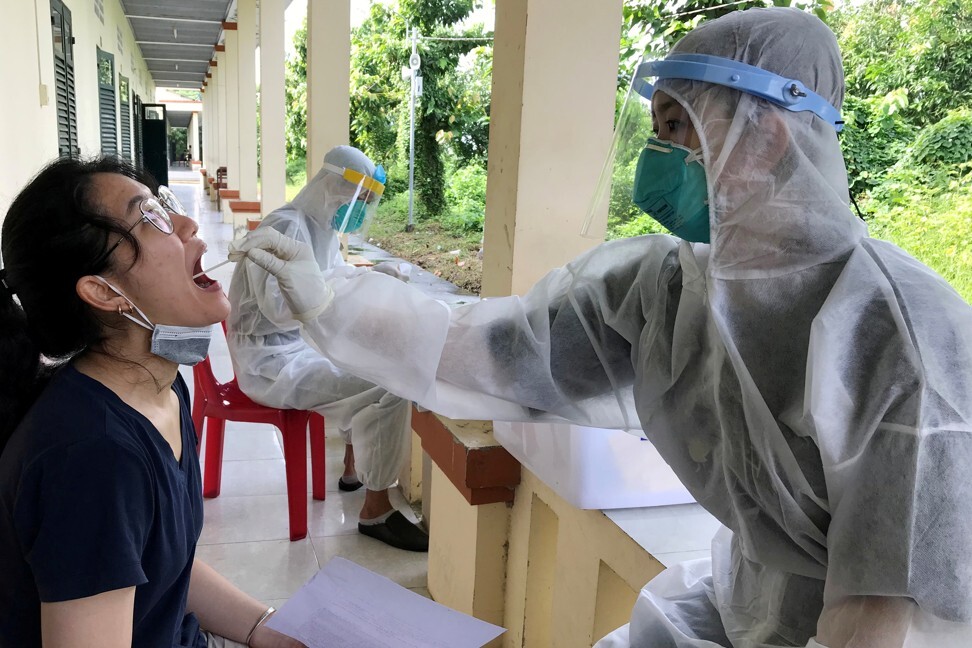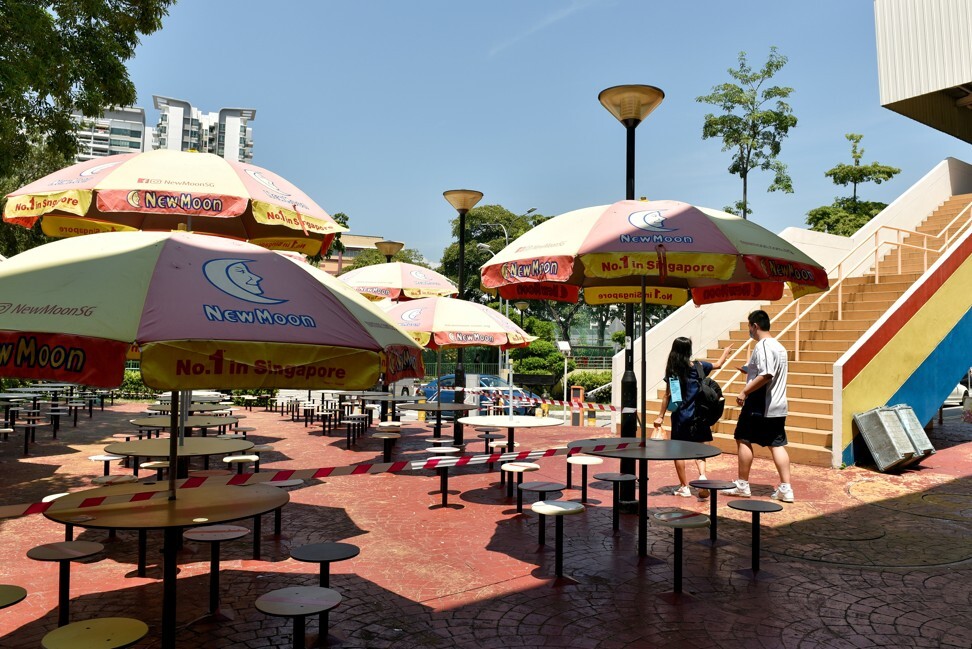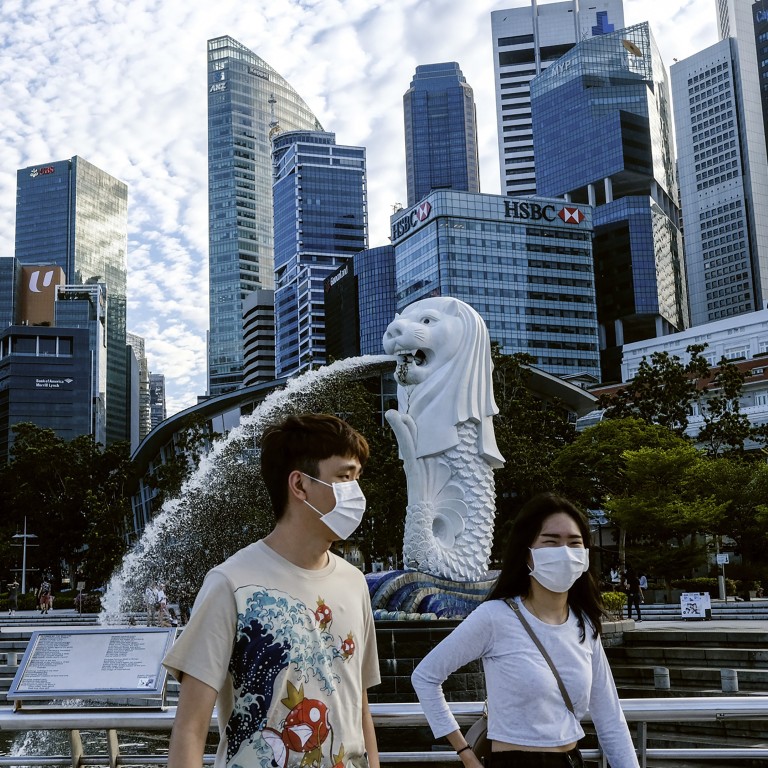
Explainer | Singapore trades Covid-Zero for ‘Covid Resilience’. How will it work?
- Singapore’s move to loosen border and social restrictions isn’t a ‘big bang reopening’ but a ‘calibrated’ approach with ‘Test, Trace and Vaccinate’ as a mantra to keep Covid-19 in check
- It knows there are risks but wants to send a message that the economy relies on openness and a flow of foreign investment and talent
Singapore will from September remove quarantine requirements for vaccinated travellers from Germany and Brunei, in a signal to the world it is cautiously reopening while managing the Covid-19 threat.
By trading its previous Covid-Zero approach for a new policy of “Covid resilience”, the city state is setting itself apart from neighbours that are either still grappling with rising caseloads or are pressing on with an elimination strategy that comes with its own set of costs.
Will Covid-19 become more infectious with more variants emerging?
Speaking to Bloomberg on Friday, Transport Minister S. Iswaran said the government’s thinking was that the sooner society learned to live with Covid-19, it could adjust “protocols ... and processes to return to normalcy as much as possible”.
“If we don’t do that and if we’re waiting for an eradication type of approach it might not be possible given the way the virus is mutating,” he said.
But what exactly does “Covid resilience” entail?
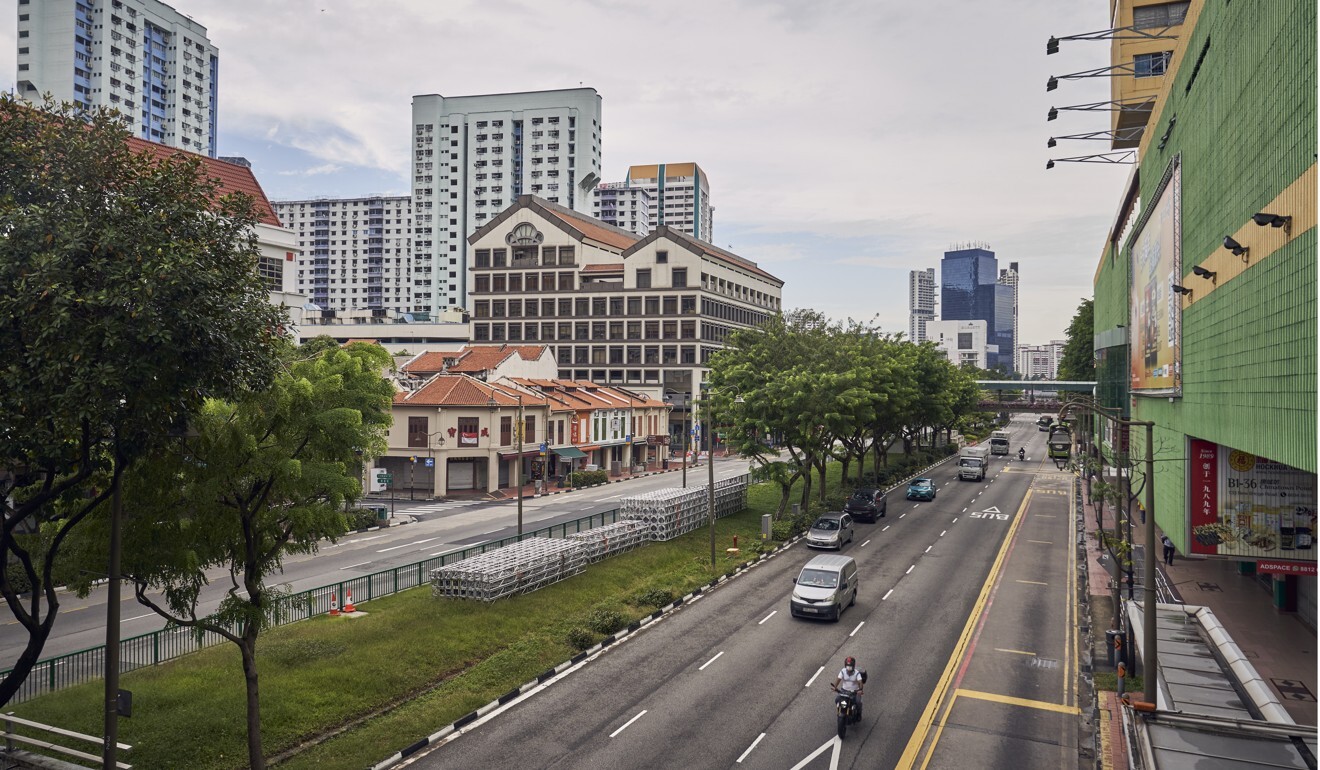
What’s life like now in Singapore?
Singapore offers the Pfizer-BioNTech and Moderna vaccines but also provides Sinovac through the private health service. The government said it would likely introduce booster shots and was now studying overseas cases to determine the incidence of adverse reactions and to assess if people should and can receive different vaccines.
Singapore cuts quarantine for Hong Kong, even as travel bubble bursts
But while the statistics look good, authorities have cautioned that Singapore is far from a “big bang reopening”.
There are limits on the total number of people allowed in tourist attractions, malls and gyms, and caps on the number of guests at weddings, funerals and live events. They need to check-in to locations digitally using TraceTogether tokens or the contact-tracing app.
Those who are fully inoculated are also given more liberties. Vaccinated residents can now dine at restaurants in groups of five, while the unvaccinated are limited to eating in pairs at open-air hawker centres.
But food and drink venues are banned from playing music – live or recorded – in case it causes patrons to talk more loudly and increase the risk of contagion.
Who can travel to Singapore? Can Singaporeans leave?
Travellers from Category II locations must serve a seven-day quarantine, while travellers from Category III and IV locations must serve 14 days – at home or at a dedicated hotel facility respectively.
In Asia’s Covid-19 reopening debate, are scientists having too much say?
Singapore’s government advises against all unnecessary travel. However, the official advice was updated on August 19 to say residents fully vaccinated with Pfizer-BioNTech, Moderna or other vaccines on the World Health Organization’s emergency use listing may travel overseas, for example, to places such as Brunei or Germany via the vaccinated travel lane.
They should defer travel to Bangladesh, India, Myanmar, Nepal, Pakistan and Sri Lanka, the government advice said.
Destinations that allow quarantine-free entry for travellers from Singapore include the United States, Britain and Germany.
What are the rules for travellers while in Singapore?
Fully vaccinated travellers will receive a passport sticker at Singapore immigration, indicating they are subject to the differentiated measures for vaccinated people, such as dining at restaurants in groups of five.
Travellers must download the TraceTogether app while in Singapore. From September, the app will be able to show a travellers’ vaccination status.
Travellers using the vaccinated travel lane from Germany or Brunei must be tested before departure and on arrival, and be swab-tested on the third and seventh days of their trip. Those coming from Hong Kong or Macau need only to take an on-arrival test at the airport.
If they are unvaccinated and still want to dine in restaurants, they can join unvaccinated Singaporeans for pre-event testing. The results are valid for 24 hours although not all restaurants accept these results.
What’s the contingency plan if cases spike again?
Finance Minister Lawrence Wong, a key member of the government’s multi-ministry taskforce to manage Covid-19, said Singapore recognised the risk of easing border and social distancing measures. However, authorities were confident the high vaccination rate would minimise hospital admissions and intensive care cases, although measures may still be adjusted if cases rise, he said.
“As the saying goes, we are feeling the stones as we cross the river,” Wong said. “Each time we make a move, we will monitor the data, we will look at the evidence and ensure that our hospital system is able to cope with the infection situation before we take the next step.”
Asian airlines report high Covid-19 vaccination rates among staff
Authorities will control the number of travellers entering via the vaccinated travel lane by capping the number of flights at seven flights a week from Germany and three flights a week from Brunei.
According to Dr Jeremy Lim of the National University of Singapore’s Saw Swee Hock School of Public Health, interventions will need to be ratcheted up or down depending on the case numbers and health care system capacity.
“Ideally, there is no alarm or euphoria and everyone calmly executes the plan,” he said.
When did Singapore decide to treat Covid-19 as endemic?
Singapore has been preparing to live with Covid-19 since Prime Minister Lee Hsien Loong addressed the nation on May 31, signalling the shift by declaring the pandemic “will not dominate our lives”.
The task force managing the pandemic response designed a road map for reopening and the government released its “Let’s Test, Let’s Trace, Let’s Vaccinate” jingle.
Towards the end of July, the phrase “Covid-resilient” began appearing in ministerial speeches, although a virus cluster at a fishery port prompted a mini-lockdown. Despite the disruption, authorities remained committed to the reopening plan.
How does ‘zero-Covid’ end? After Hong Kong U-turn, questions mount over exit strategy
One obstacle to the plan was the slow vaccination uptake among the elderly despite Singapore providing earlier access to citizens older than 70. When the last mini-lockdown was implemented in July, vaccination among the elderly was 70 per cent.
There has since been a government marketing blitz including TV ads appealing to the elderly to get vaccinated, and general practitioners have been urged to convince their patients. The government also mobilised volunteer doctors and nurses to inoculate people at home. The vaccination rate among those older than 70 has since risen to 81 per cent.
By comparison, Hong Kong’s vaccination rate is just over 30 per cent for people aged 70-79, and about 10 per cent for people older than 80.
A closer look at Hong Kong’s Covid-19 rules after Nicole Kidman saga
Experts have suggested that if the vaccination rate among Singapore’s elderly population does not improve, there could be a further 1,000 deaths in the next year or two.
Singapore’s coronavirus death toll remains low, at just 46, a fraction of about 800 flu-related deaths in a normal year.
All recent deaths have been linked to the Delta variant, including 10 recorded since July 24. Only one of those casualties was fully vaccinated. He was 90 and had chronic kidney disease and hypertension.
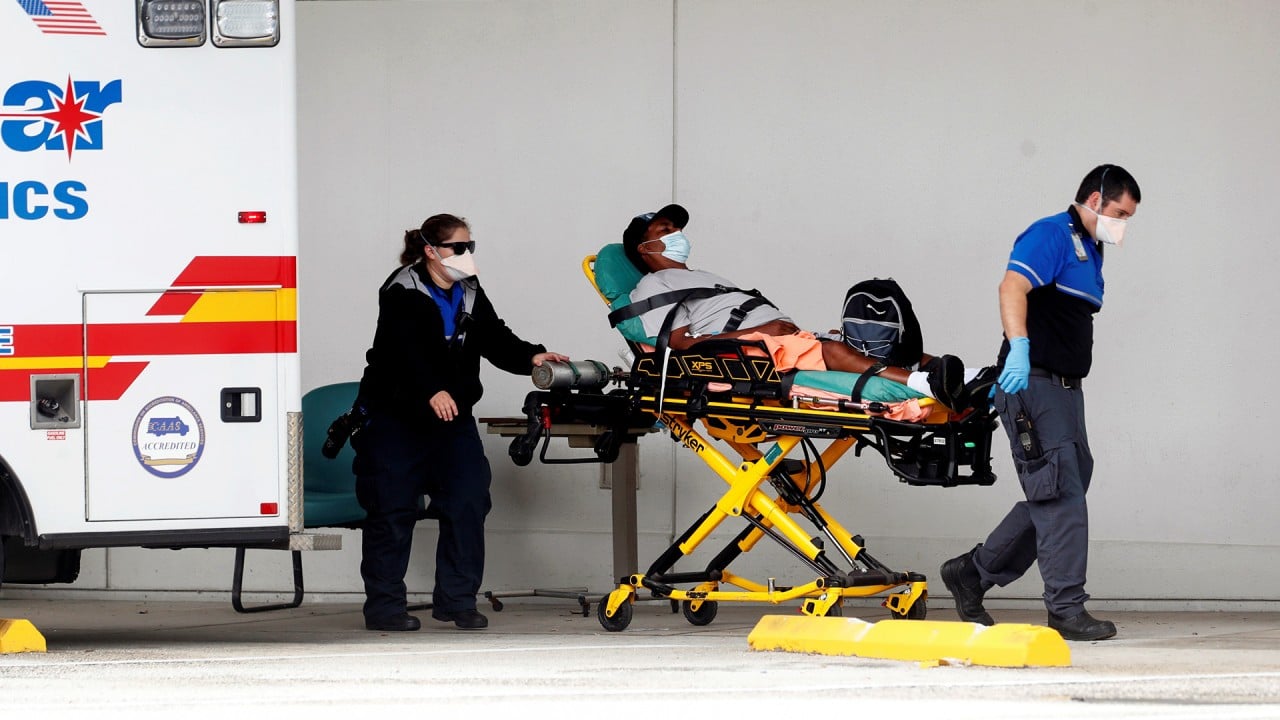
02:34
Delta variant drives Covid-19 surge in southern US as unvaccinated are urged to get shots
What other message is Singapore seeking to send with its ‘Covid Resilience’ plan?
Speaking to the European Chamber of Commerce a day after the city-state announced looser border measures, Health Minister Ong Ye Kung admitted the government “could not satisfy all the demand” from companies seeking approval for executives to travel in and out of Singapore, and thanked foreign partners “for bearing with all the inconveniences and heartaches of the past 18 months”.
Expats had been raising concerns that with Singapore’s border restrictions, they risked not being let back into the city-state if they were compelled to return to their home countries to settle urgent personal matters.
In his remarks, reported by Bloomberg, Ong also acknowledged the domestic debate over foreign labour, much of it sparked by angst over foreign workers and expats amid the economic challenges brought about by the pandemic.
Singapore was well aware that “we are too small to survive on our own and we must tap global markets”, he said, reiterating that its economy relies on openness and the government continued to welcome foreign investment and talent.
Singapore to adjust foreign worker policies to address job concerns
Transport Minister Iswaran, meanwhile said Singapore was seeking to add more countries to its vaccinated travel lane. Referring to the vaccinated travel lane with Germany and Brunei set to start next month, he told Bloomberg: “We’ve calibrated it tightly in terms of designated flights but the intention really is to do this well so that we can then scale up”.
Senior economist Irvin Seah of DBS Bank in Singapore said Hong Kong had “a lot of catching up to do”. Hong Kong had to increase its vaccination rate – only 45.4 per cent of the 7.5 million population have been fully inoculated – or it could face slowing economic recovery in the next six to 12 months.


